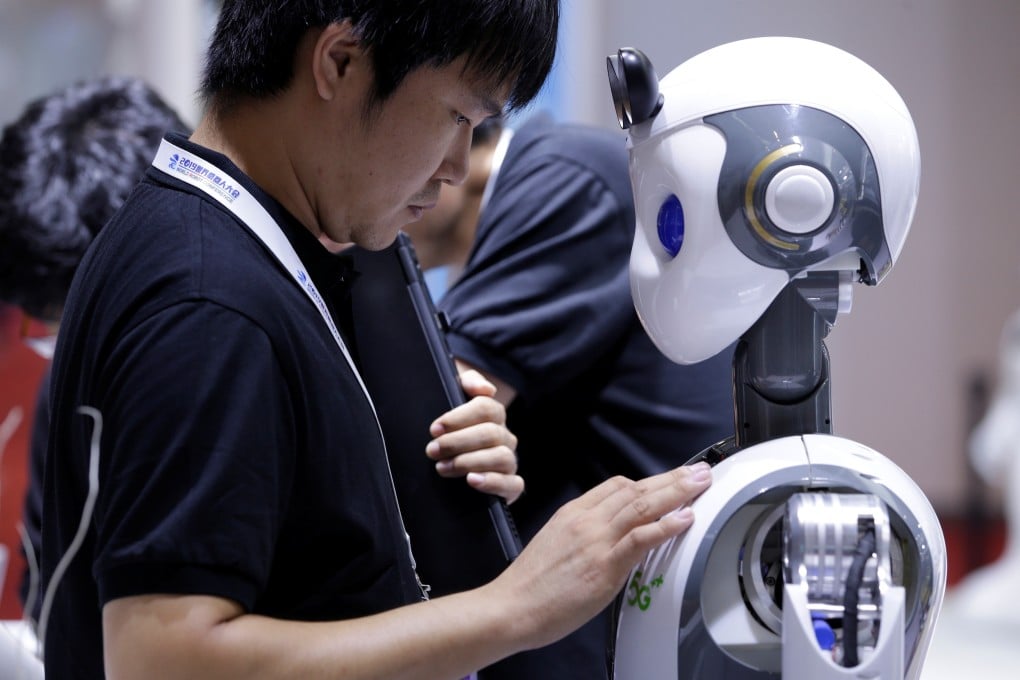Robotics start-up CloudMinds returns to China after US sanctions hurt its business in Silicon Valley
- CloudMinds lost almost 75 per cent of orders in the US and cut 80 per cent of its US workforce after Washington imposed sanctions over national security risks
- As the pandemic eases in China, CloudMinds is targeting the retail and security sectors as well as janitorial and reception service

Cloud robotics and artificial intelligence start-up CloudMinds has abandoned plans to go public in the US, as it eyes a move to Shanghai and listing on China's new Nasdaq-style board, after its business was hit by rising tensions between the world’s two largest economies.
The company was founded in Silicon Valley in 2015 by Bill Huang, a Chinese born engineer who spent most of his working career in the US, including several years at the famed Bell Labs in New Jersey, where core technologies such as the transistor, lasers and mobile phone networks were first developed.
“Definitely, we will not consider listing in the US any more after the sanctions,” Huang, the CEO of the SoftBank-backed CloudMinds, said in an interview with the South China Morning Post last Thursday.
In July last year the provider of cloud-based systems for robots was blocked from exporting any of its US-developed technology to China, Reuters reported in March. Then in May this year CloudMinds was banned from buying US products without Washington’s approval on the grounds that it posed a “significant risk” of supplying US technologies for military end-use in China.
“The sanctions disabled our operations in the US. We lost almost 75 per cent of orders in the country and 80 per cent of our US workforce has been cut for obvious reasons. Six months ago, we had nearly 100 employees in the US while now we have less than 10.”
Huang has a unique perspective on the current tech war, describing the resulting decoupling as something he “has never seen before.”